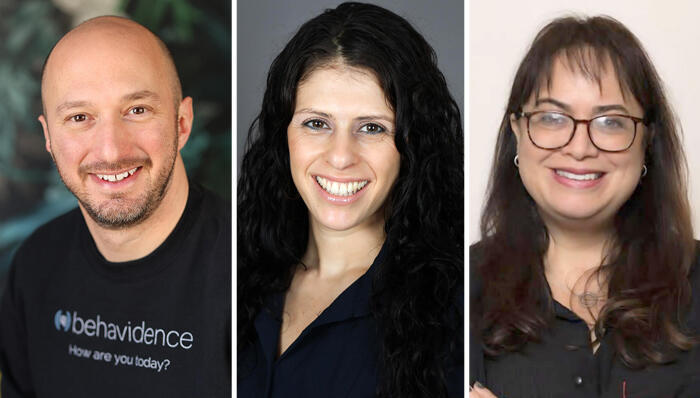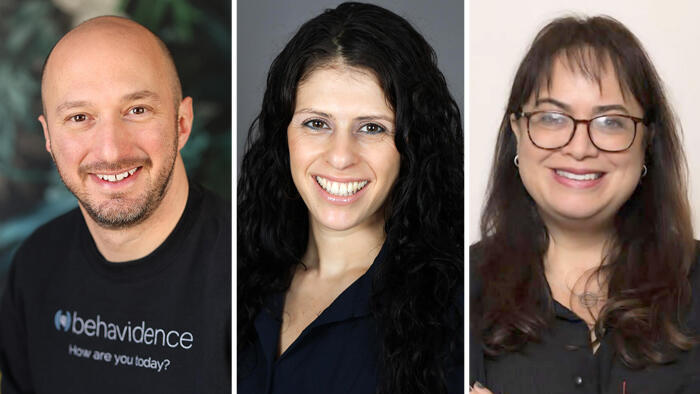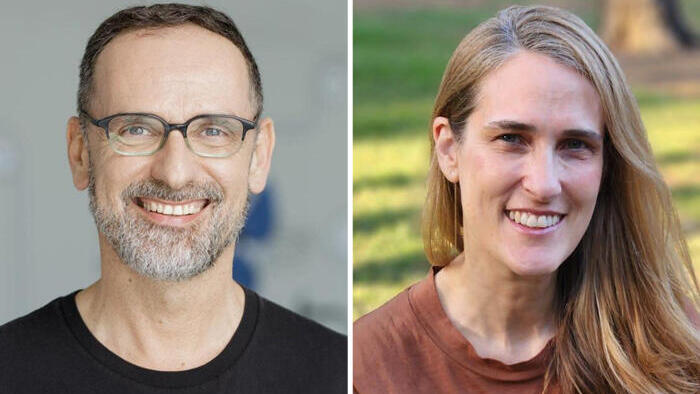
Can tech solve Israel’s escalating mental health crisis?
With trauma compounding and resources stretched, could the Israel-Iran conflict accelerate the adoption of digital and AI-driven mental health care in Israel?
As Israel grapples with the psychological strain of compounded conflict, first following the October 7 Hamas attacks, and more recently with the confrontation against Iran in the wake of Operation Rising Lion, mental health resources are being stretched to their limits. Even amid the newly announced ceasefire, which is meant to offer a halt to hostilities for now, the emotional aftermath across the nation is far from resolved.
Systemic challenges like clinician shortages, access disparities, and a lingering stigma around traditional therapy stand in contrast to a growing, urgent national need for support. According to McKinsey, the total burden from mental health conditions in 2025 is estimated at 183 million disability-adjusted life years (DALYs). At the same time, “emerging therapeutic options such as digital therapies are gaining recognition for their accessibility and effectiveness, particularly in low-resource settings.”
Indeed, global online behavior reflects growing openness to and traction for such digital therapies. As highlighted by Harvard Business Review, therapy has become the leading use case for generative AI in 2025.
In Israel, a multitude of platforms are already operating in this space. These include AI-based services such as Kai.ai, physiological approaches from Calmigo, passive sensing technologies by Behavidence, and the digitally scaled trauma response of NATAL, Israel’s Trauma and Resiliency Centre.
While the current situation unfolds against the uncertainty of a ceasefire and atop over a year and a half of sustained conflict, it raises the question of whether this juncture will mark an inflection point for tech-enabled mental health care in Israel, and whether these tools will gain the trust, investment and institutional support to play a more central role.
Cracks in the system reveal a growing need for alternatives
In recent years, Israel’s mental health system has faced mounting pressure, with the current situation exposing the full extent of its strain.
“Since October 7, we have seen an increase of 300% in people consuming psychiatric drugs in Israel,” said Adi Wallach, CEO and Co-Founder of Calmigo. “And the estimation right now is that there are 3 million people who are suffering from trauma.”
Organizations like NATAL, founded in 1998, have had to rapidly expand in response to escalating demand. In the earliest hours of October 7, it was the only helpline broadcast on Israeli television. It has also been instrumental in developing new, condensed treatment protocols adopted by both the Ministry of Health and the Ministry of Defense.
“Before October 7, NATAL had about 100 therapists,” said Ifat Morad, Director of International Relations, Partnerships and Resource Development. “Now we have more than 600 therapists all over Israel.” In tandem, the organization has launched a new app, expanded services via WhatsApp and Zoom, and integrated an AI bot to triage helpline calls. “We had about 400 people getting therapy one on one on a weekly basis. Now we have more than 3,000 on a weekly basis and counting,” she continued.
Mental health crises in Israel are often marked by waves of people turning to NATAL’s services. Speaking to the present national climate, Morad observed: “we are now in what we call rolling trauma. The trauma didn’t just finish. It’s rolling as we speak. We’re in it, all of us.”
Startups step in with tech-driven mental health solutions
While traditional mental health services in Israel have worked to leverage digitization to expand their reach, several startups are aiming to address the growing mental health crisis with tech-first or hybrid solutions.
Kai.ai, a hybrid mental health platform combining human clinicians with conversation-based AI, has reached over 200,000 people in need. Initially launched in English, the service expanded to Ukrainian and Russian during the Ukraine war, and to Hebrew following October 7. In partnership with the humanitarian organization The Joint, Kai began offering free support to reservists, students, and civilians – a move it has continued amid the Israel-Iran conflict, now providing a full month of subsidized support to anyone impacted. The offer remains in place, notwithstanding the ceasefire.
For CEO Alex Frenkel, the AI component is central to the platform’s mission “because the AI is accessible 24/7.”
Calmigo, meanwhile, takes a physiological approach, offering a handheld device that activates the parasympathetic nervous system to deliver both immediate relief and long-term support. “You can think about the device as a remote control to your nervous system,” explained Wallach, who noted that Calmigo is one of the only non-medicated solutions providing fast-acting relief alongside sustained therapeutic benefits. “It’s as easy to use and as effective as a pill, but does not require a prescriber, and at a fraction of the cost as well.” Following October 7, the company donated 1,300 units to hostage families, soldiers, and traumatized children.
Behavidence was founded to bridge the gap in early diagnostics and intervention. “We detect mental health disorders or dynamics based on how you use your phone,” said Co-Founder Roy Cohen. “Just by passively sensing your patterns of behavior.”
The passive approach, he explained, is key to long-term user retention. “We chose passive sensing because whenever we ask the user to do something, the chances of them staying with us a week later is gone.”
In the wake of October 7, the company also made its product freely available to support those affected. It is now working with HMOs and the Ministry of Defense to monitor PTSD symptoms in reservists.
For Cohen, the fundamental inefficiency in how care is delivered is a costly blind spot: “Treating early is cheap. But now the systems are designed to treat only when the symptoms are severe.”
Users are driving the shift in digital adoption
With such tech-driven support in circulation, those on the ground are observing a shift in how Israelis are engaging with mental health support. While institutional inertia may be slowing adoption, some founders believe that change may ultimately be driven by users themselves.
Cohen insists that most people seeking support are willing to explore any solution available. “They’re willing to try everything… and then decide whether they like it or not.”
Similarly (and in line with findings from the Harvard Business Review) Frenkel noted that the current crisis appears to be lowering the psychological barrier to entry, with signs of a user-led shift toward increased uptake of digital therapy.
“Something that is interesting, in my mind, is what people are actually using AI for. You will see that the number one use is self-therapy,” he stated. “I don't think clinicians can ignore the fact that their patients are already trying to use AI.”
From his observation at Kai, “We definitely see more and more people using the AI because there's less stigma, less worry of being judged, less shame. So we see usage rising all the time. This is something that we see clearly,” he stated.
Related articles:
Still, even as patients lean in, some institutions remain wary of the implications. Cohen pointed to a systemic reluctance to uncover the true scale of need: “Most of the HMOs or the \[third-party\] payers are scared of what happens if now we discover half a million more patients with depression,” said Cohen. “It’s almost like saying, let’s not test for COVID, because we don’t have vaccinations.”
This institutional hesitation, he added, isn’t unique to Israel. “We've seen it in the US, UK and in Israel.”
Still, he believes the momentum is shifting, and that legacy systems will eventually have to evolve to keep up. “We’ve got the turning point,” he stated. “Patients are starting to try a lot of different solutions… it’s either the health authorities will lead it or the patients will lead it… and now we’re starting to see that the patients are leading it, which is brilliant.”
Not a replacement but the only viable path forward?
Systemic hesitation or not, the founders argue that a broader embrace of the full capacities of HealthTech is the only realistic path to scaling mental health support at the pace Israel now requires. Frenkel argues that it can extend the reach of clinicians, with AI in particular serving as a vital resource for triage and immediate response.
“There are not enough clinicians, and the wait lists are getting longer and longer,” he said. “Technology can help. It can help with screening. It can help with immediate response. It's very, very significant. It should play a larger role than currently having.”
From Wallach’s point of view, “What technology is doing and should do is to make mental health accessible to all, accessible and affordable for everyone.” She added, “the other thing that technology is doing very well is personalization.”
That being said, when it comes to the role technology should play in Israel’s mental health response, each platform presents itself not as a replacement for therapy, but as a way to bolster existing care.
“We really believe in this hybrid model where the clinician has the experience and can adjust the AI,” said Frenkel. “The combination is very, very powerful.”
Cohen also pushed back against any assumption that AI can (or should) replace therapists: “Still, people find it a bit hard to talk about their emotions with a chatbot and get the same levels of assistance that they would get from a human being.”
Wallach agreed. Based on her findings, she stated: “Companies who try to totally replace the human factor did not succeed... The magic happens when you provide solutions that can stand alone, but also can work together with other methodologies when it’s needed.”
For NATAL, while digital capabilities may support wider access, they are not seen as a substitute for human care, or the therapist’s role. “Human touch is extremely important for the healing process,” stressed Orly Zohar, NATAL Professional Manager, Clinical Psychologist, and Supervisor.
In Morad’s words: “It’s going to be a complementary service to help the therapist to reach many people faster. That’s the target. Not a replacement.”

